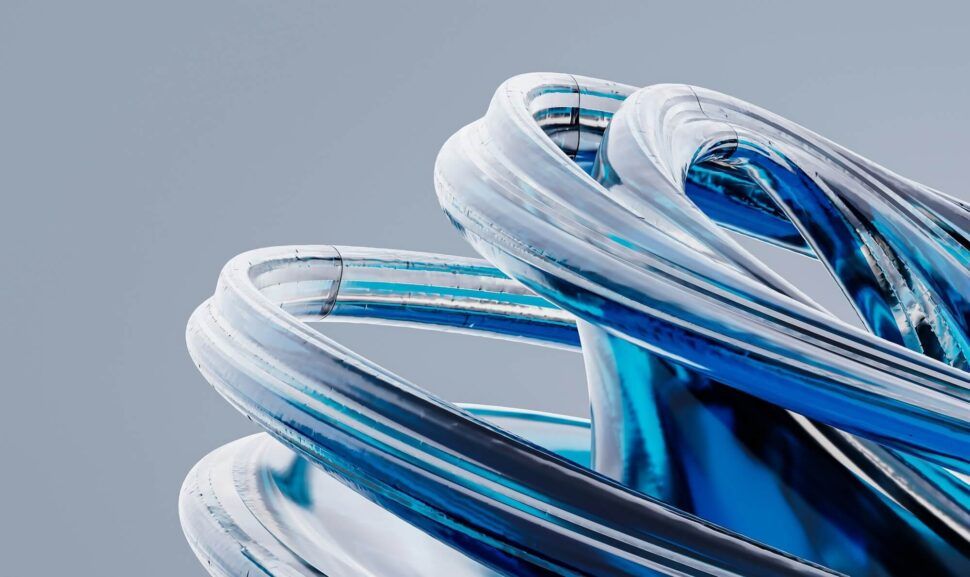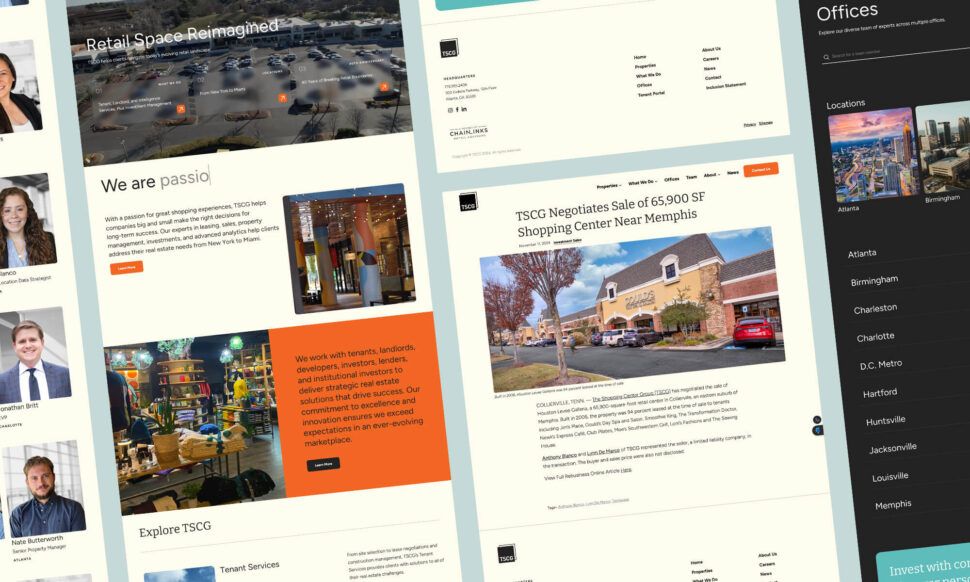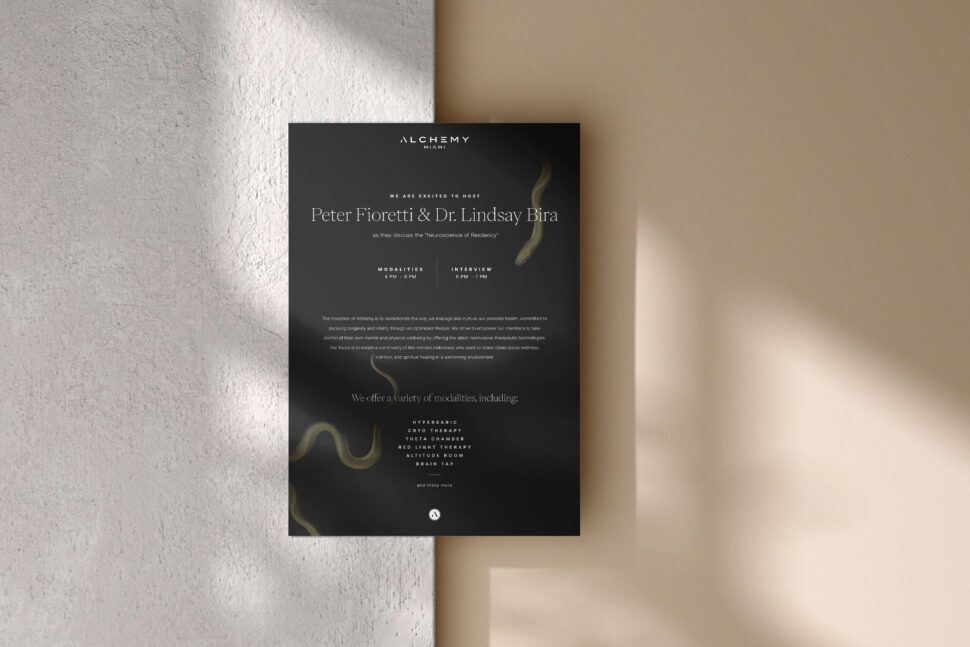
Staying ahead of the competition is more crucial than ever. One strategy gaining considerable traction is the rise of in-house agencies. By bringing creative services under one roof, businesses can harness greater control, streamline operations, and foster richer brand narratives. But what exactly does it mean to unlock the power of in-house agencies, and how can this approach catapult your business to success? In this article, we’ll delve into the core benefits of in-house agencies, exploring their impact on efficiency, collaboration, and brand consistency. You’ll learn actionable insights that can transform your marketing efforts. Whether you’re contemplating building an in-house team or refining an existing one, understanding this dynamic can be the key to unlocking new growth opportunities. Join us as we uncover the essential elements you need to know for harnessing the full potential of in-house agencies and elevating your business strategy.
Understanding In-House Agencies: Definition and Overview
In-house agencies, also known as internal agencies, are specialized departments within a company dedicated to handling various aspects of marketing, advertising, and creative services. Unlike traditional models where businesses outsource these tasks to external agencies, in-house agencies bring the creative process under one roof. This integration allows companies to maintain greater control over their marketing strategies, ensuring that all communications align closely with the brand’s vision and goals. In-house teams typically encompass a range of roles, including graphic designers, copywriters, social media managers, and strategic planners, all working in unison to drive the company’s marketing efforts forward.
The concept of in-house agencies isn’t entirely new but has gained significant momentum in recent years. This shift is driven by the increasing need for agility and immediate response to market changes, along with the desire for cost efficiency and enhanced brand cohesiveness. By having a dedicated team that is deeply enmeshed in the company’s culture and objectives, businesses can ensure that their marketing initiatives are not only aligned with their strategic goals but also executed with a deep understanding of their core values and market positioning.
In-house agencies offer a unique blend of creativity and business acumen. They are not just about producing marketing materials but are instrumental in crafting and maintaining the overall narrative of the brand. This holistic approach to marketing enables companies to be more responsive to market trends, create more personalized and consistent messaging, and ultimately, build stronger connections with their audience. As we delve deeper into the benefits and operational dynamics of in-house agencies, it’s essential to understand the foundational principles that make them a powerful tool for modern businesses.
The Evolution of In-House Agencies in Modern Business
The evolution of in-house agencies is a testament to the changing landscape of marketing and business strategy. In the past, companies primarily relied on external agencies for their advertising needs due to the high costs and complexities associated with building and maintaining an internal team. However, as technology advanced and the digital age dawned, businesses began to recognize the potential advantages of having a dedicated in-house team. The ability to produce content quickly, respond to market shifts in real-time, and maintain a consistent brand voice became increasingly valuable.
In recent years, the rise of digital marketing and social media has further propelled the growth of in-house agencies. The need for rapid content creation, real-time engagement, and data-driven decision-making has made it more practical for companies to bring these functions in-house. Moreover, the proliferation of marketing tools and platforms has made it easier for businesses to manage their marketing efforts internally. These tools provide in-house teams with the capabilities to execute complex campaigns, track performance, and optimize strategies without the need for extensive external support.
Additionally, the shift towards in-house agencies is also driven by the desire for greater transparency and accountability. By having an internal team, companies can have direct oversight of their marketing activities, ensuring that all efforts are aligned with their strategic objectives. This level of control not only enhances the effectiveness of marketing campaigns but also fosters a culture of collaboration and innovation within the organization. As a result, in-house agencies have become a critical component of modern business strategy, enabling companies to navigate the complexities of the marketing landscape with greater agility and precision.
Key Benefits of Utilizing In-House Agencies
One of the primary benefits of utilizing in-house agencies is the unparalleled level of control businesses have over their marketing efforts. With an internal team, companies can ensure that every piece of content, every campaign, and every marketing initiative is perfectly aligned with their brand’s identity and strategic goals. This level of control allows for greater consistency in messaging, which is essential for building a strong and cohesive brand image. In-house teams are deeply familiar with the company’s values, culture, and objectives, enabling them to create marketing materials that resonate deeply with the target audience.
Cost efficiency is another significant advantage of in-house agencies. While the initial investment in building and maintaining an internal team can be substantial, it often proves to be more cost-effective in the long run compared to outsourcing. External agencies typically charge premium rates for their services, and the costs can quickly add up, especially for businesses that require ongoing marketing support. In contrast, an in-house team can provide a steady stream of creative output without the need for constant renegotiation of contracts and fees. Furthermore, the proximity of the in-house team to the business allows for more efficient use of resources and quicker turnaround times.
Enhanced collaboration is a key benefit that cannot be overlooked. In-house agencies foster a culture of collaboration and innovation by bringing together diverse skill sets under one roof. This close-knit working environment encourages open communication, idea-sharing, and cross-functional teamwork, leading to more creative and effective marketing solutions. The ability to collaborate closely with other departments, such as product development, sales, and customer service, ensures that marketing efforts are well-integrated with the overall business strategy. This holistic approach to marketing not only enhances the effectiveness of campaigns but also drives better business outcomes.
Comparing In-House Agencies to Traditional Outsourcing
When comparing in-house agencies to traditional outsourcing, several key differences and considerations come to light. One of the most significant distinctions lies in the level of control and alignment with the company’s vision. In-house agencies, being part of the organization, have an intrinsic understanding of the brand’s values, culture, and strategic goals. This deep alignment ensures that all marketing efforts are cohesive and reflective of the brand’s identity. In contrast, external agencies, despite their expertise, may require extensive onboarding and continuous communication to grasp the nuances of the brand, potentially leading to misalignment and inconsistencies in messaging.
Speed and agility are other critical factors to consider. In-house teams can often respond more swiftly to market changes, emerging trends, and internal demands. The proximity of the in-house team to the decision-makers allows for quicker approvals, faster iterations, and real-time adjustments. This agility is particularly valuable in today’s fast-paced digital landscape, where timely and relevant content can significantly impact a brand’s engagement and visibility. On the other hand, external agencies may face delays due to communication barriers, contractual obligations, and the need to balance multiple clients, which can hinder their responsiveness.
However, traditional outsourcing has its own set of advantages, particularly in terms of access to specialized expertise and scalability. External agencies often bring a wealth of experience and specialized knowledge, having worked with various clients across different industries. This breadth of experience can provide fresh perspectives and innovative solutions that an in-house team might not possess. Additionally, external agencies can scale their resources based on the project’s requirements, offering flexibility that might be challenging for an in-house team to match. Ultimately, the choice between in-house and outsourcing depends on the specific needs, goals, and resources of the business.
The Embedded Agency Model: A Hybrid Approach
While businesses often see in-house agencies and outsourced digital agencies as two separate paths, there’s a growing middle ground: the embedded agency model. In this setup, a company partners with an external agency but integrates them so closely into the organization that they function like an internal team.
Embedded agencies may work on-site, adopt the company’s tools and workflows, and sometimes even dedicate an exclusive team to one client. This arrangement gives businesses the agility and specialization of an external partner while still benefiting from the alignment and brand familiarity of an in-house agency.
The biggest advantage of the embedded model is flexibility. Companies can scale resources up or down without long-term hiring commitments, while still ensuring brand consistency and day-to-day collaboration. For many organizations, this hybrid approach provides the “best of both worlds” — maintaining strategic control while tapping into external expertise.
Looking for a partner who can plug in seamlessly?
Whether you’re weighing an in-house team, outsourcing, or exploring an embedded model, the key is finding a structure that aligns with your goals. Let’s talk about how our team can become your on-demand creative ally.
Book a CallEssential Skills and Expertise for In-House Teams
Building a successful in-house agency requires a diverse set of skills and expertise that can cover the full spectrum of marketing and creative needs. One of the foundational skills for any in-house team is strategic planning. This involves understanding the company’s long-term goals, market positioning, and competitive landscape, and then developing marketing strategies that align with these objectives. Strategic planners must be adept at analyzing market data, identifying trends, and crafting plans that drive growth and engagement. Their ability to think critically and anticipate future challenges is crucial for the success of the in-house agency.
Creative talent is another essential component of an effective in-house team. This includes graphic designers, copywriters, videographers, and other creative professionals who can produce high-quality content that captivates and engages the audience. These individuals must possess a keen eye for design, a strong sense of storytelling, and the ability to translate complex ideas into compelling visuals and narratives. Their creativity and innovation are vital for developing unique and memorable brand experiences that set the company apart from its competitors.
Technical proficiency is also critical in today’s digital-driven marketing landscape. This encompasses skills in digital marketing, social media management, SEO, web development, and data analytics. Digital marketers must be proficient in using various tools and platforms to create, distribute, and measure the effectiveness of marketing campaigns. Social media managers need to understand how to engage audiences across different channels, while SEO specialists focus on optimizing content for search engines. Data analysts play a crucial role in interpreting marketing data and providing insights that inform strategic decisions. Together, these technical skills ensure that the in-house agency can execute comprehensive and data-driven marketing strategies.
Building a Successful In-House Agency: Best Practices
Building a successful in-house agency starts with a clear vision and strategic alignment with the company’s goals. The first step is to define the objectives and scope of the in-house team, ensuring that their efforts are directly tied to the business’s overarching strategy. This involves setting clear expectations, identifying key performance indicators (KPIs), and establishing a roadmap for achieving the desired outcomes. Effective leadership is crucial in this phase, as it helps to articulate the vision, inspire the team, and foster a culture of accountability and excellence.
Recruiting the right talent is another critical factor in the success of an in-house agency. It’s essential to hire individuals who not only possess the necessary skills and expertise but also fit well with the company’s culture and values. A diverse team with a mix of creative, strategic, and technical skills can bring different perspectives and innovative ideas to the table. Investing in continuous training and development is equally important, as it ensures that the team stays updated with the latest trends, tools, and best practices in the industry. This commitment to professional growth fosters a learning environment that encourages experimentation and innovation.
Collaboration and communication are key to the smooth functioning of an in-house agency. Establishing clear communication channels and collaborative processes can help streamline workflows and ensure that everyone is on the same page. Regular meetings, brainstorming sessions, and feedback loops can facilitate the exchange of ideas and ensure that all team members are aligned with the project goals. Utilizing project management tools and platforms can also enhance efficiency by providing visibility into the team’s progress, deadlines, and responsibilities. By fostering a collaborative culture, businesses can harness the collective creativity and expertise of their in-house team to deliver exceptional marketing outcomes.
Common Challenges Faced by In-House Agencies and How to Overcome Them
Despite the numerous benefits, in-house agencies are not without their challenges. One common issue is the risk of creative burnout. Working on the same brand day in and day out can lead to a lack of fresh ideas and a decline in creativity. To combat this, it’s important to encourage continuous learning and exposure to new trends and ideas. This can be achieved through workshops, industry events, and collaboration with external creatives or freelancers for specific projects. Providing opportunities for team members to work on diverse projects within the company can also help keep their creativity and enthusiasm alive.
Resource constraints are another challenge that in-house agencies often face. Unlike external agencies that can scale their resources based on project needs, in-house teams may have limited bandwidth and capabilities. To address this, it’s crucial to prioritize projects based on their strategic importance and impact. Implementing efficient project management practices can help allocate resources effectively and ensure that the most critical tasks are completed on time. Additionally, leveraging technology and automation tools can streamline processes and free up the team’s time for more creative and strategic work.
Maintaining objectivity can also be a challenge for in-house agencies. Being so closely tied to the brand, team members may sometimes struggle to see their work from an external perspective. This can lead to biased decision-making and a lack of critical evaluation. To overcome this, it’s beneficial to seek feedback from other departments, external stakeholders, or even customers. Conducting regular reviews and audits of marketing campaigns can provide valuable insights and help identify areas for improvement. Encouraging a culture of constructive criticism and open dialogue can also ensure that the team remains objective and focused on delivering the best possible outcomes.
Measuring the Success of Your In-House Agency
Measuring the success of an in-house agency is crucial for understanding its impact on the business and identifying areas for improvement. One of the primary metrics to consider is the return on investment (ROI). This involves comparing the costs of running the in-house agency, including salaries, tools, and resources, against the revenue generated or cost savings achieved through their efforts. By calculating the ROI, businesses can determine whether the in-house agency is delivering value and driving growth. Additionally, tracking key performance indicators (KPIs) such as lead generation, conversion rates, and customer engagement can provide insights into the effectiveness of marketing campaigns.
Another important aspect of measuring success is assessing the quality and consistency of the creative output. This can be evaluated through regular reviews and feedback sessions, where team members and stakeholders can provide constructive criticism and suggestions for improvement. Conducting surveys and gathering feedback from customers can also help gauge the impact of marketing materials on the target audience. By maintaining high standards of creativity and ensuring that all content aligns with the brand’s identity, businesses can build a strong and cohesive brand image that resonates with their audience.
Employee satisfaction and retention are also key indicators of an in-house agency’s success. A motivated and engaged team is more likely to produce high-quality work and contribute to the overall success of the agency. Regularly assessing employee satisfaction through surveys and one-on-one meetings can help identify any issues or areas for improvement. Providing opportunities for professional development, recognizing and rewarding achievements, and fostering a positive work environment can enhance job satisfaction and reduce turnover. By prioritizing the well-being and growth of their team, businesses can ensure the long-term success and sustainability of their in-house agency.
Future Trends: The Growing Role of In-House Agencies in Business Strategy
As the marketing landscape continues to evolve, the role of in-house agencies is expected to grow even more significant. One of the key trends driving this growth is the increasing importance of data-driven marketing. In-house agencies are well-positioned to leverage data and analytics to inform their strategies, optimize campaigns, and deliver personalized experiences. By having direct access to customer data and insights, in-house teams can create more targeted and effective marketing initiatives that drive engagement and conversions.
Another trend shaping the future of in-house agencies is the rise of integrated marketing communications. Businesses are recognizing the need for a unified and consistent approach to their marketing efforts, and in-house agencies are uniquely equipped to deliver this integration. By bringing together creative, digital, and strategic functions under one roof, in-house teams can ensure that all marketing activities are aligned and working towards common goals. This holistic approach not only enhances the effectiveness of campaigns but also strengthens the overall brand identity.
The growing focus on brand authenticity and transparency is also contributing to the rise of in-house agencies. Consumers today demand more genuine and relatable brand experiences, and in-house teams can deliver on this expectation by creating content that is deeply rooted in the company’s values and culture. The close proximity and alignment with the brand enable in-house agencies to produce authentic and meaningful content that resonates with the audience. As businesses continue to prioritize authenticity and customer-centricity, the role of in-house agencies in shaping and executing marketing strategies will become increasingly vital.








